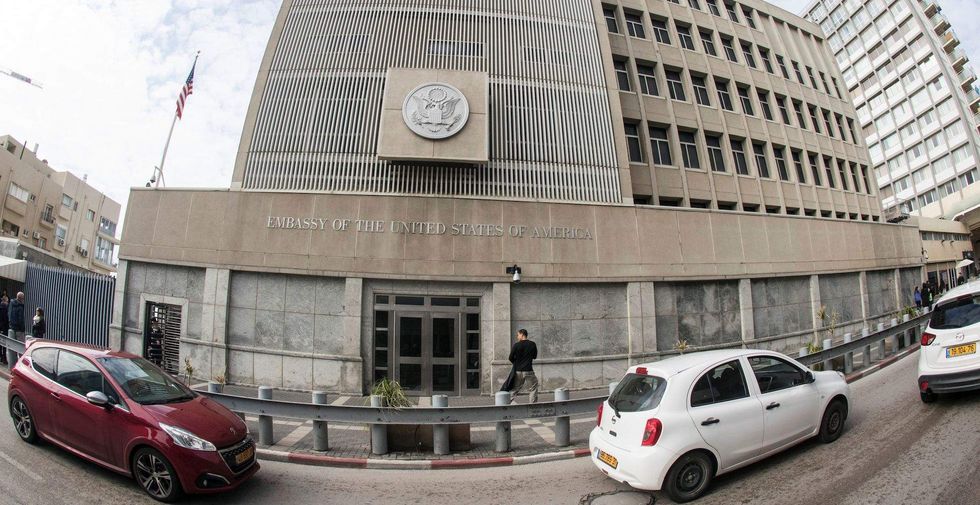
President Donald Trump signed a six-month waiver Wednesday, maintaining the U.S. Embassy in Tel Aviv, and breaking a long-held campaign promise to move it to Jerusalem. (2016 file photo/Jack Guez/AFP/Getty Images)

President Donald Trump has opted against moving the U.S. embassy in Israel from Tel Aviv to Jerusalem, walking away from a key campaign promise — at least for now.
On Wednesday, Trump signed a six-month waiver that will maintain the American embassy in Tel Aviv, aides confirmed to The New York Times Thursday. The order the president signed waives an edict — the Jerusalem Embassy Act — passed by Congress and signed into law by President Bill Clinton in 1995, requiring that the embassy be relocated to Jerusalem.
There is a provision within the act that allows the president to delay the embassy’s relocation for a six-month period if he or she “determines and reports to Congress in advance that such suspension is necessary to protect the national security interests of the United States.”
Every president since the passage of the act has signed the waiver twice a year, maintaining the U.S. embassy in Tel Aviv.
Trump faced a Thursday deadline to sign the waiver, or let it expire. When the new six-month waiver ends, Trump will have to revisit the issue.
The White House said in a statement that “no one should consider this step to be in any way a retreat from the president’s strong support for Israel and for the United States-Israel alliance,” according to USA Today.
But Trump’s decision to keep the embassy in Tel Aviv is a major shift away from his campaign rhetoric. In 2016, then-candidate Trump delivered a speech before the American Israel Public Affairs Committee, vowing to “move the American embassy to the eternal capital of the Jewish people — Jerusalem.”
The president began backing away from moving the embassy when King Abdullah II of Jordan flew to Washington, D.C., to explain to the White House why the move might not be such a good idea, the Times reported. The king warned that relocating the embassy might anger Arabs, hurting any chances of striking a deal between Israel and Palestine.
The decision comes on the heels of Trump’s first international trip, during which he met with Israeli Prime Minister Benjamin Netanyahu and Palestinian leader Mahmoud Abbas.
“We know that peace is possible if we put aside the pain and disagreements of the past and commit together to finally resolving this crisis,” Trump said during a speech in Jerusalem. “I am personally committed to helping Israelis and Palestinians achieve a peace agreement.”
The fight over Jerusalem has a long history in the fight between Israel and Palestine.
Israel sees Jerusalem, which is home to some of the most consequential sites in the Jewish religion, as its unequivocal capital. But Palestinians want East Jerusalem as the capital of its not-yet-established, independent state.
Because of the hostile negotiations between the two groups, the U.S. has long opted out of relocating its embassy, claiming the decision not to move it to Jerusalem is in hopes a peace agreement might emerge.
Trump is certainly not alone in his decision to keep the embassy in Tel Aviv, though. Just like him, former Presidents Bill Clinton and George W. Bush vowed on the campaign trail to move the embassy to Jerusalem only to abandon the pledge once in office.